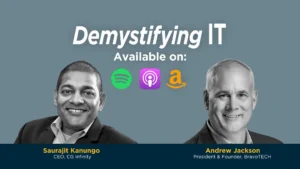DISTRIBUTECH 2024: Private Cellular Networks Bring Enhanced Security and Cost-Saving Abilities for the Future of Utilities
As global utilities gear up to invest a staggering £2 billion in private cellular networks by 2026, the industry stands on the cusp of a transformation. This massive shift towards private networks underscores a collective move to bolster reliability, enhance security, and achieve unparalleled real-time visibility into utility operations. The essence of this transition lies in the utilities’ ability to exert complete control over their network SIMs, ensuring that access is meticulously managed and security risks associated with public networks are mitigated.
Beyond its security features, private networks can help save money in the long run. MarketScale spoke to Curt Ahart, VP of Corporate Business Development at Digi International, on the show floor of energy transmission and distribution show DISTRIBUTECH 2024. While noting that the initial investments to build private networks can be pretty expensive, Ahart pointed out that this upfront investment is offset by the elimination of recurring charges for device connectivity, marking a pivotal move towards cost efficiency as utilities scale from thousands to millions of devices.
Ahart’s Thoughts
Control and Security with Private Networks
“The thing about the private network is they control the SIMs, so really to have any access onto their network it would have to be provided by a SIM and any type of device, and they have complete control over that SIM’s work. So the primary reason they’re going to private cellular network is reliability.”
The Drive for Reliability and Real-Time Grid Management
“With all the forces that are on them, regulations and moving to decarbonization, and they won’t be able to do that with the current mobile networks, not in a reliable way. So the primary reason they’re going to private networks is reliability, security, and just having that real-time visibility into their grid. The thing about the private network is they control the SIMs, so really to have any access onto their network it would have to be provided by a SIM and any type of device, and they have complete control over that SIM’s work. In a public mobile network, the mobile operator’s providing those to all kinds of different parties, and if you look at it, it’s really a big shared resource, and that introduces vulnerabilities.”
Financial Advantages and Operational Efficiency
“One of the big data points they capture is ongoing savings. They go and get the capital expenditures to build out these networks, and these networks, they could be somewhere between $300 [million] to $1 billion to build out, but once that network is in place, it becomes a free asset to the utility. So as they pile on and move from tens of thousands of devices to hundreds of thousands or millions, they have no recurring charges associated with those assets. Today, everything that they put on a public network, they pay the carrier for, and the more they add, the more they pay.”
Article written by MarketScale.








